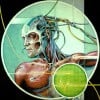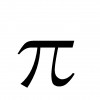If you are writing stories / novels, is it better to write in chronological orde
If you are writing stories / novels, is it better to write in chronological order or out of order?
Chronological order - chapter by chapter, scene by scene.
Out of order - chapter 8, chapter 1, chapter 20, etc.
Which is the better method? And what do you think are the advantages and disadvantages of these methods? Also, which method do you think will get you to finish writing a story faster?There's a great book called "Writing Fiction" by Janet Burroway which gives a methodology for writing along with amazing examples. I've found it quite helpful as I'm in the process of writing a novel, too. But in the end, it really depends on what method works for you individually. Everybody thinks differently and not all methods work for everyone.
I find it works for me to write what comes to mind in stream of consciousness form and later go back and fill in the gaps and correct the obvious typos. Just one opinion.I've never heard of the book you mentioned. I'll have to check it out. I guess it does depend on the person but just wondering what might work best or if there are other alternatives that might be better to try or to consider.
There are some that are very methodical, and write every scene in order, blow by by blow. I'm sure that for some people this works, There others, who, once they have worked out their main characters and plot, little scenes pop into their heads, which they write down, and may or may not use in the story. This probably allows the author to more understand what he is telling. This way probably works for many authors. Of the two, I think the latter seems a better way to go, and I'm sure that even methodical authors start their stories this way, little ideas popping into their heads, then working them out. I would imagine that the most logical way to go is to try both ways and go with what seems right for you and the story. Which will probably be a mix of the two. But, I would immagine that it would be fatal to any story to think, ah, so-n-so, late in the story, is going to do whatever, then not write a rough of the scene because you're not at that bit yet, memory is notoriously flimsy. Remember, it is all right for you to have worked out and written the ending first.
Yes, it would be bad not to write down a rough draft of a scene that might happen later on in your story because you might forget. But if you already have a draft and you're now writing your story, will you still be writing in or out of order?
If I have a rough draft for, events and characters for something that may be, say, chapter six, and the fancy takes me to do so, I will write out the whole, knowing that it will likely need to be modified as I get around, and beyond it.
Some stories begin at the end, go to a 'beginning', then work towards where they started. Can be confusing to follow unless well executed. It's been done no end of times by famous crime writers, amongst others. You've got to let your reader/audience know what's going on, though, otherwise if they can't follow your 'thread' they might just put the book down/walk out.
Don't let it get get too involved, or you could get mixed up and lose the plot. Your readership/audience certainly wouldn't be able to understand your thought pattern and there goes your writing career...Those are interesting types of stories that can be tricky to execute well. But I was wondering more on if you're still just writing your story and you only have a draft but will now try to write it fully, is it better to write it in or out of order?
I do my writing straight onto the laptop, (that's my notebook now) work through and go back through it again to straighten it out or change things.
Before I had my laptop I wrote notes, a 'rough' translated into type as it would appear in print.
I've never considered writing out of chronological order... You just blew my mind and really helped me out. That would definately help with my writers block. Sometimes when writing I get stuck with one chapter and just cannot move on. By possibly skipping that chapter and jumping to another one, I could get through the writing process faster... I want to know if that works for others.
I know what you mean about getting stuck in a chapter. But my concern in writing out of order is that it might be hard to connect scenes together and it might not flow well with the rest of the story so I wanted to know what others thought of this.
For the most part, I write chronologically. I like to experience the story with the characters and figure things out as I go. However, I do have a tendency to jump over uninteresting parts in order to keep the story going (which I later fill in). I also find that this method is a little problematic because it focuses more on the central plot line rather than side stories. It would be like reading Harry Potter without all the Quiddich, holidays and non-plot related shenanigans. And some of that stuff can be really hard to inject after the main plot line is already written. Writing out of order can really help with that, but then you run the risk of a zig-zagging narrative that is harder to follow. Honestly, I think both methods are totally valid, it's just a question of which you enjoy more. Good question!
I like to write chronologically too but sometimes I find myself stuck in a chapter. I wonder about writing out of order but I'm concerned that the scenes would be hard to connect, might not fit together & story might not flow well. What do you th
I've written scenes out of order before and they aren't that hard to connect. But, in general, writing something out of order is better than letting the story go idle. If you end up hating what you wrote, you can always discard it and start over.
I don't know if the value judgments "better" or "worse" apply here, but it is certainly reasonable to write your novel out of order. For example, if you have a key conflict or development in your story that you want to base the rest of the novel around, it may be a good idea to flesh it out first so you have a stronger concept to use in formatting the rest of the story line.
Also writing out of order can help with writer's block. Sometimes you know where you would like to go in your novel, but you're not sure how to arrive at that point. By writing out a scene that occurs towards the end of your story, it might help you to see your destination a little more clearly and find a path to get there.
Of course there's nothing wrong with writing chapter by chapter. This method gives you a natural structure and organization; it's easier to remember exactly what's going on in the story.
I wouldn't get too bent out of shape about which way is better. Just write. If you've got some great ideas about how that final scene should play out, then get it on paper! If you want to write the story from the beginning and let it evolve on its own, then do it! You asked about the fastest way to finish your novel. The fastest way to finish your novel is to keep writing. Whatever allows you to do that is the best method for you.Good points. Writing out of order might help with writer's block but you don't think doing so might disrupt the flow of the story & cause the scenes to not fit well together? Guess the best way to finish is write but writer's block can be a probl
I write out of order. I care about the interesting bits and I'll leave the boring in-between stuff until last because nobody cares about that stuff anyway. It helps me avoid writer's block because I can just move onto a different section. Chances are I'm going to move the scenes around anyway. It keeps me from feeling locked in to the direction I'm taking the story.
I have written stories "chronologically" for NaNoWriMo (National Novel Writing Month). It works to just press forward and discover things as your characters do but the editing process for those sorts of works is much more tedious.To be honest, it really depends on the individual story, as well as the writer. I wrote two separate novels, both were Historical Fiction, both were set in the same time period with a similar narrative going throughout the plot. I used both of these methods for each one and found them both to work equally for me. Of course there are advantages and disadvantages to both, but I personally prefer writing chronologically. If I did not write in order, I would worry about myself wanting to avoid the boring but necessary parts of the story. If I wrote just the best scenes first there wouldn't be any good meaty bits to write when I got further along in my writing. There always are less interesting chapters, but writing chronologically gives you a taste of both and keeps things varied. Therefore, I think this will inevitably get your story written faster. You may be quicker at first if you do it out of order, but you'll soon be left with the bits that aren't so interesting. With nothing exciting left, this might become a real chore.
That being said, I prefer not to plan my novels in order, to ensure all my scenes work together. I sometimes like to move things around before my draft, so I like to be able to pick any scene I want to write when I get my inspiration. When it comes down to the actual draft though, things are chronological again. The only exception I make is if I get stuck on a chapter, which we've all done. Working on the next chapter is usually my solution, then I work my way back once I feel confident in writing it again.
Hope this was of use to you.
Related Discussions
- 32
Who, or what, was the greatest influence on you to become a writer?
by Enelle Lamb 13 years ago
Who, or what, was the greatest influence on you to become a writer?Who or what made you decide to write? Was it a person, favorite author, hobby, lifestyle change, etc.
- 6
Hello, I Want To Start Writing Stories On Hubpages...
by MrCTMProductions 15 years ago
Hello, I Want To Start Writing Stories On Hubpages...And I have a few questions. What topic should it be under? What should I make the maximum number of words per hub be? Should I include videos, photos, etc.? The basics...
- 30
People writing "&" ampersand instead of writing out "and"
by Debby Bruck 10 years ago
This thread connects to Web Examiner's recent thread about an epidemic use of lower case "i" in place of the proper letter "I" as a pronoun. http://hubpages.com/forum/topic/93177I find a similar common lazy shortcut when people use the "&" symbol in place of...
- 4
writing stories together and why....
by deb douglas 14 years ago
I have found that when we try to write things together, what happens is that nobody actually reads what the others wrote so that the story ends up being very choppy, at times does not make sense, and even the names of the characters are messed up or changed. In the end the work is not good.I...
- 12
How do you write your books?
by Leah Lenau 11 years ago
How do you write your books?From my experience, everyone has a different writing method. Is there a certain method you use? Do you share a method with another writer? Just scribble it all down or organize everything? Drawings of your characters, maps of locations, a time line on the wall to help...
- 10
Short Story or Novel? Where to Begin?
by Karen 13 years ago
I just read an article on the Mythic Scribes forum that was complaining how many new writers want to jump right in and write an epic novel (this IS a sci-fi/fantasy writer's forum) with no experience... suggesting maybe newbies would be better off sticking to the short story for a few years before...














